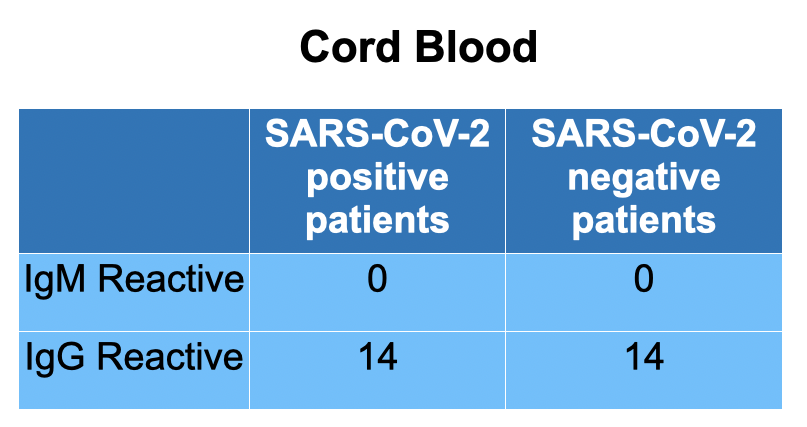Neonatal Infectious Diseases/Immunology
Neonatal Infectious Diseases/Immunology 5
446 - Correlation of Maternal and Cord Blood SARS-CoV-2 Immunoglobulin Levels in Covid-19 during Pregnancy
Monday, May 1, 2023
9:30 AM - 11:30 AM ET
Poster Number: 446
Publication Number: 446.431
Publication Number: 446.431
Gladys Rojas, University of California Irvine Medical Center, Orange, CA, United States; Muhammad Aslam, University of California, Irvine, School of Medicine, Orange, CA, United States; Cherry Uy, University of California, Irvine, School of Medicine, Orange, CA, United States

Gladys Rojas, MD (she/her/hers)
Fellow Physician
University of California Irvine Medical Center
Orange, California, United States
Presenting Author(s)
Background: Covid-19 caused by SARS-CoV-2 infection has led to a pandemic with high morbidity and mortality especially in immunocompromised and those with pre-exisiting conditions. Pregnant women are at higher risk for Covid-19 infection due to an alteration in immune response. Data on maternal transfer of anti-SARS-CoV-2 antibodies are limited. Understanding the dynamics of maternal antibody responses to SARS-CoV-2 infection during pregnancy and subsequent transplacental antibody transfer may influence neonatal management as well as maternal vaccination strategies.
Objective: Our study aimed at evaluation of SARS-CoV-2 antibodies in cord blood of infants born to mothers with active COVID-19 infection to better understand the correlation between maternal and neonatal SARS-CoV-2 antibody levels via cord blood validation.
Design/Methods: The study was approved by Institutional IRB. Following IRB guidelines, we enrolled COVID-19(+) pregnant women with Covid(-) pregnant women as control. Maternal blood was obtained at enrollment and cord blood collected at delivery. Clinical data were collected from mother-infant dyads for baseline characteristics. Samples were analyzed using coronavirus antigen microarray containing immunologically significant antigens from SARS-CoV-2 which can detect SARS-CoV-2 immunoglobulin levels.
Results: Forty mother-infant dyads have been enrolled into the study, and to date 37 paired samples have been analyzed. Demographic characteristics are shown in Table 1. Antibody results are shown in Table 2 and 3. Of the 37 pairs analyzed, 20 women were COVID-19 PCR(+) at time of delivery. SARS-CoV-2 IgG antibodies were detected in cord blood of 15 of 20 infants (75%) born to women who were COVID-19 PCR(+). 17 of 37 women were COVID-19 PCR(-). SARS-CoV-2 IgG antibodies were detected in cord blood of 14 of 17 infants (82%) born to women who were COVID-19 PCR(-). All 14 of these infants were born to women vaccinated with COVID-19 vaccine. IgM antibodies were detected in 10 of 20 (50%) COVID-19 PCR(+) women. No SARS-CoV-2 IgM antibodies were detected in cord blood.
Conclusion(s): SARS-CoV-2 IgG levels in cord blood correlated well with maternal levels. This study supports the efficient transfer of SARS-CoV-2 maternally-derived IgG antibodies that may provide neonatal protection from COVID-19 infection.
.png)
.png)

